Wearing glasses with a prescription that is too strong can cause discomfort like headaches, eyestrain, and dizziness by forcing your eyes to work too hard. […]
What Happens If You Wear Glasses That Are Too Strong?
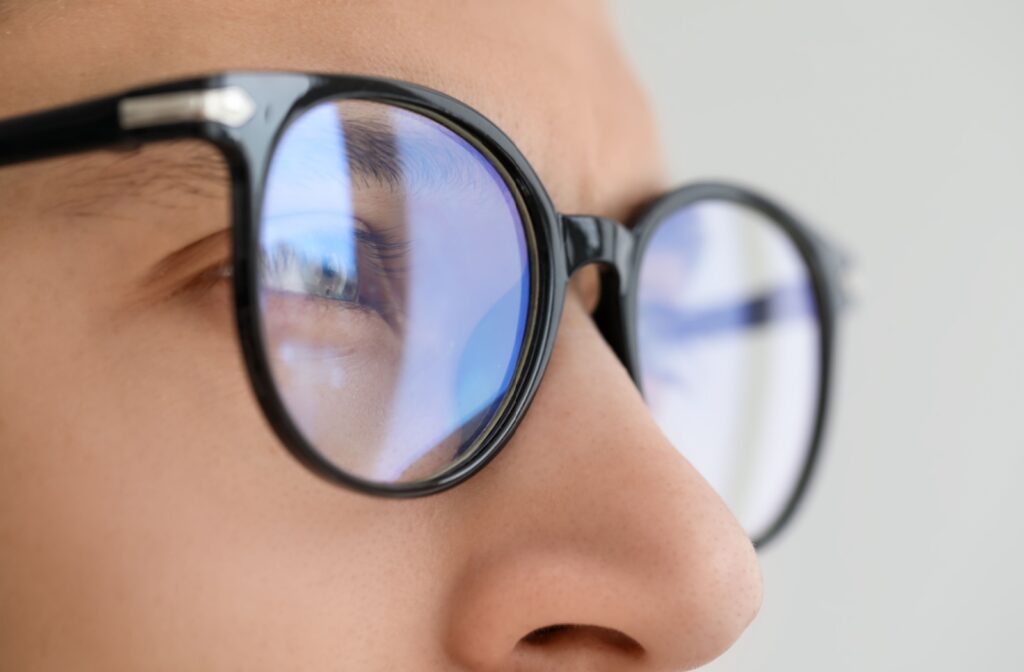

Wearing glasses with a prescription that is too strong can cause discomfort like headaches, eyestrain, and dizziness by forcing your eyes to work too hard. […]
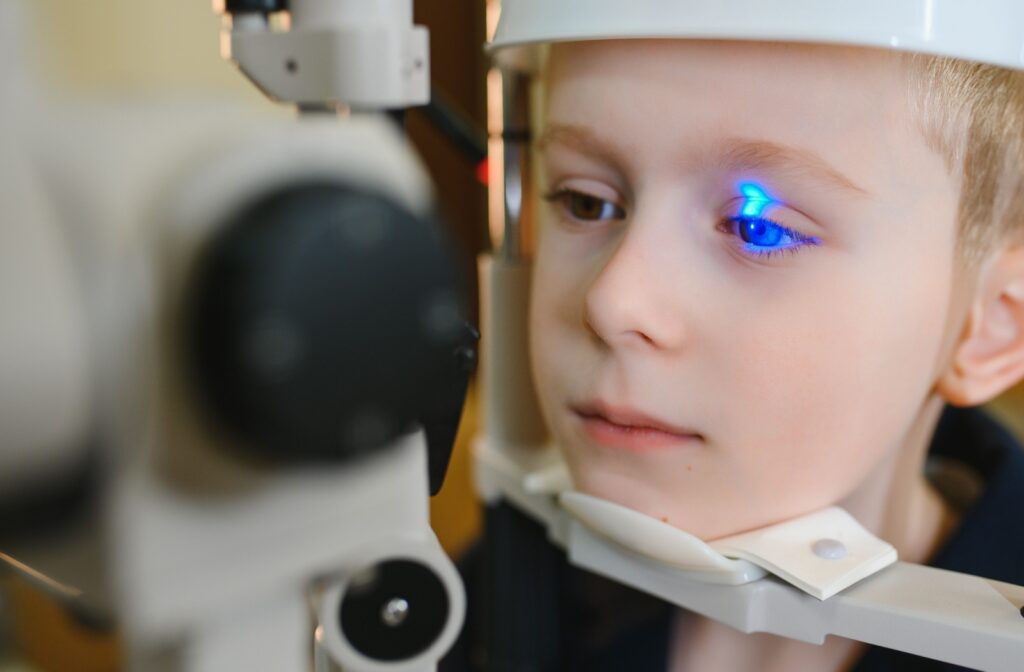
The most effective way to protect your child’s vision is by recognizing subtle physical and behavioral signs and scheduling regular comprehensive eye exams. […]
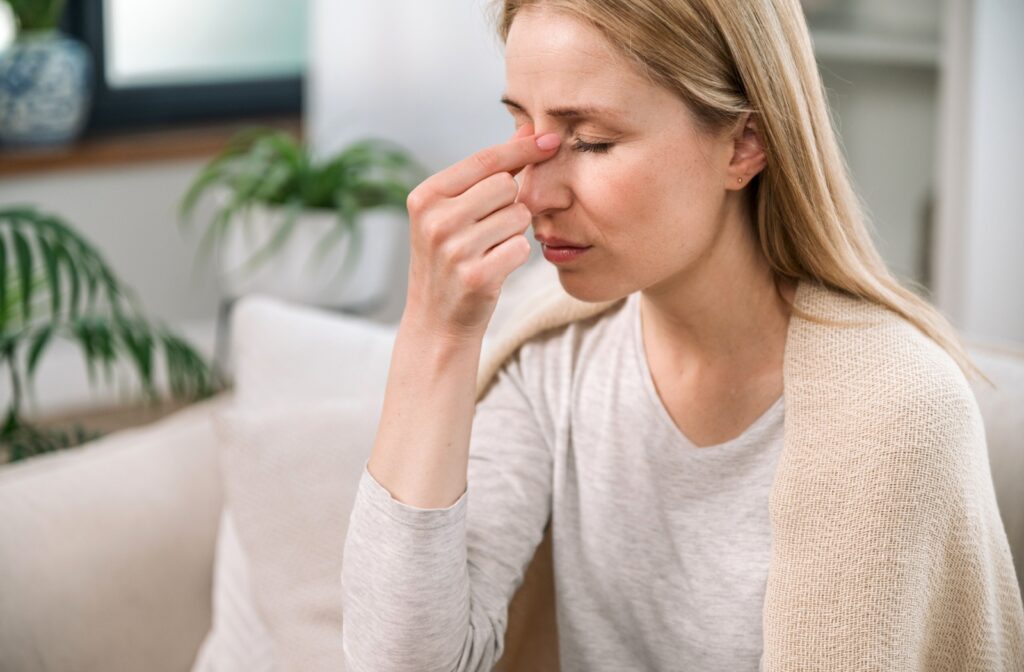
It’s a question we hear often, and the short answer is yes, sinus problems can affect your vision. […]

A lack of proper hydration can contribute to an eyelid twitch, as dehydration affects muscle and nerve function throughout your body. […]
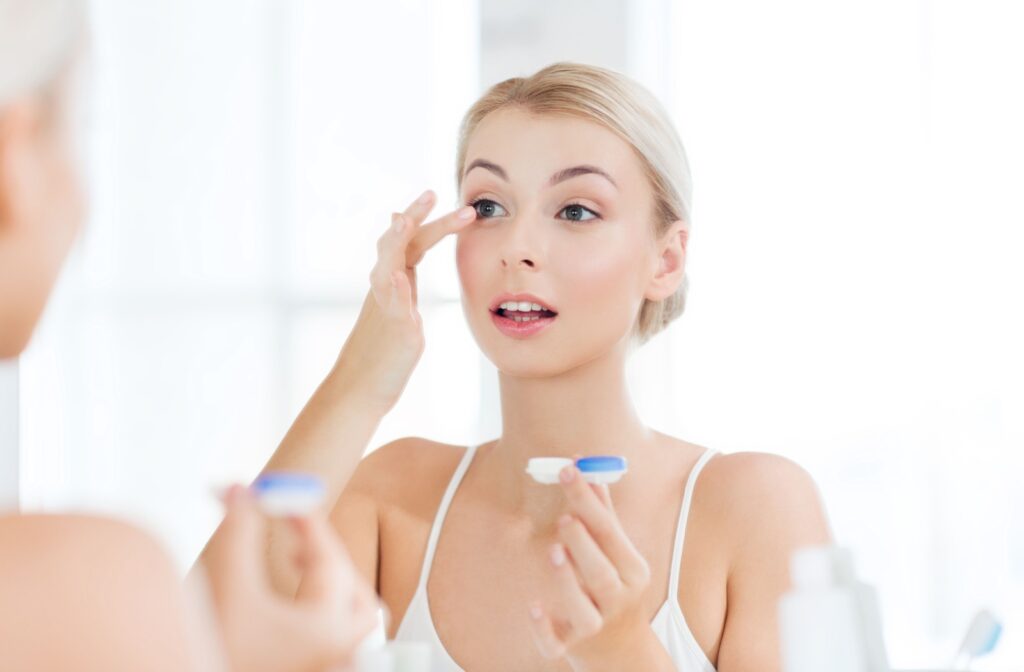
While contact lenses are designed to fit securely on your eyes, they can occasionally fall out. […]
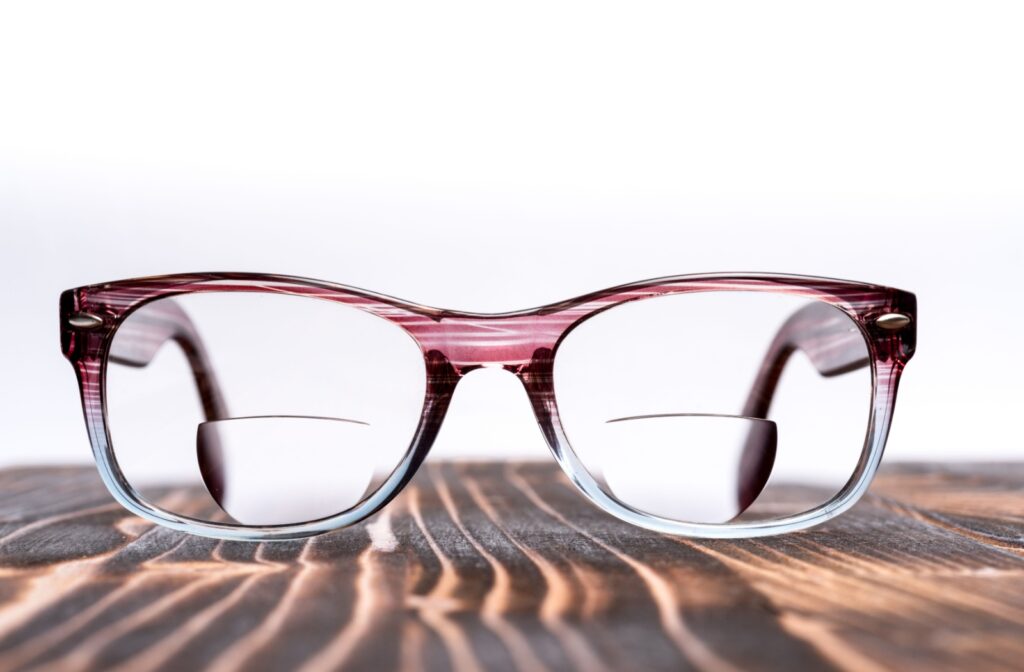
Bifocal glasses are a popular and practical solution for people who need help seeing both near and far. Bifocals typically feature a segment in the lower half of the lens designed for near tasks like reading, while the upper part of the lenses correct distance vision. […]

Eye misalignment often goes unnoticed until it takes a toll on your daily life. Fortunately, Neurolens offers an effective solution to eye misalignment. This lens technology helps realign your vision for comfort, clarity, and long-lasting relief. […]
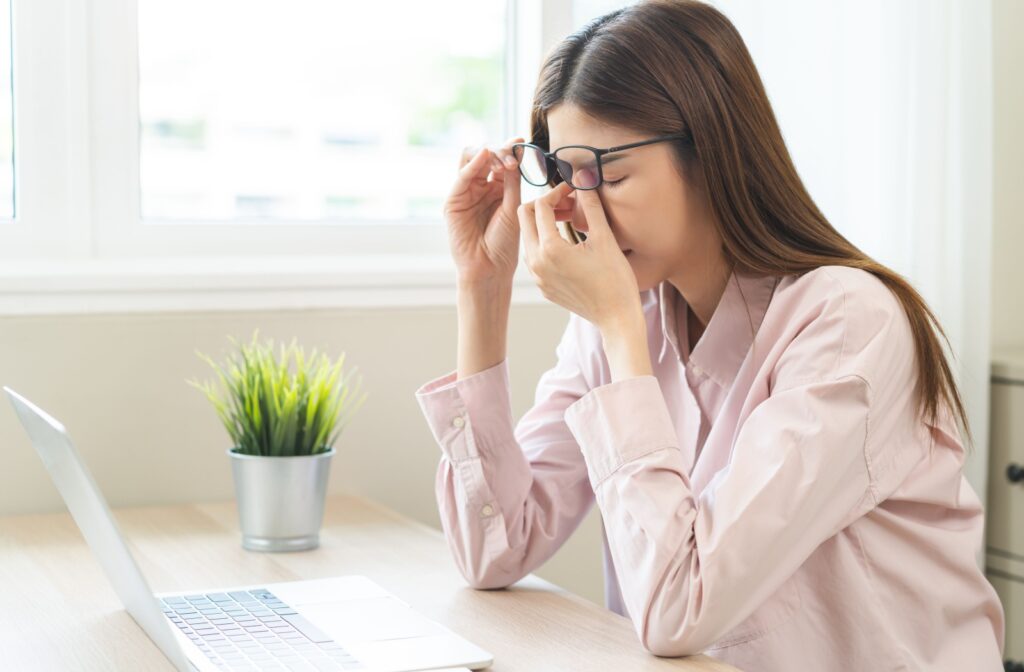
Glasses that are overcorrected can cause eye strain, headaches, dizziness, and difficulty focusing, especially when reading or using screens. […]
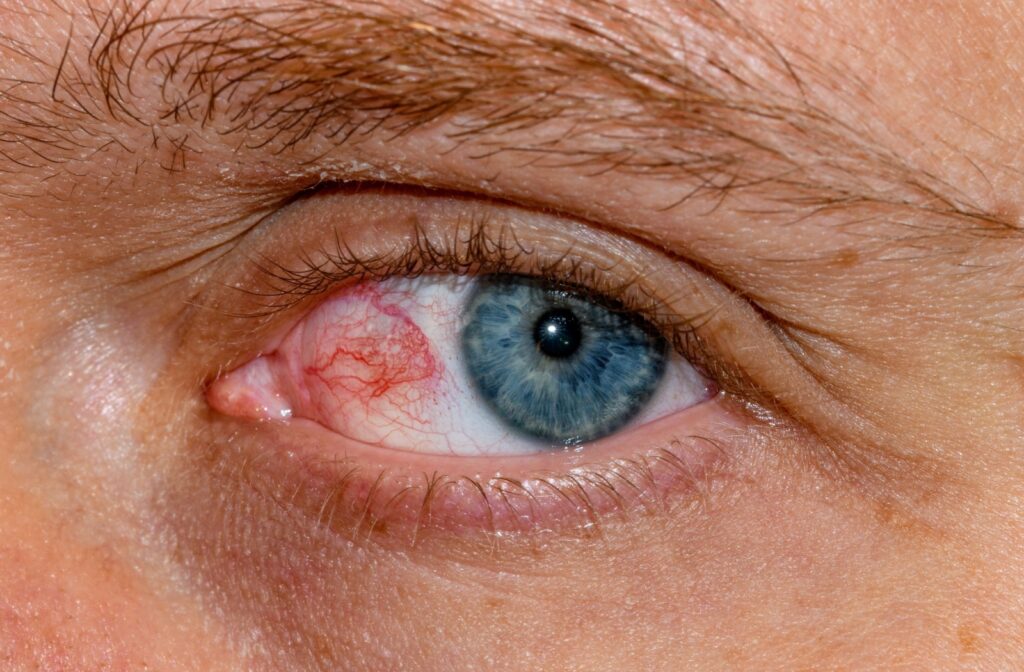
Discovering a red spot on the white of your eye can be startling. Some people notice them after a sneeze, cough, or even while lifting something heavy—which can easily make you think that something has gone wrong. Known as a subconjunctival hemorrhage, this condition might look alarming but is typically harmless.
It occurs when a tiny blood vessel bursts under the clear surface of your eye, and it usually resolves on its own within 1–2 weeks. […]
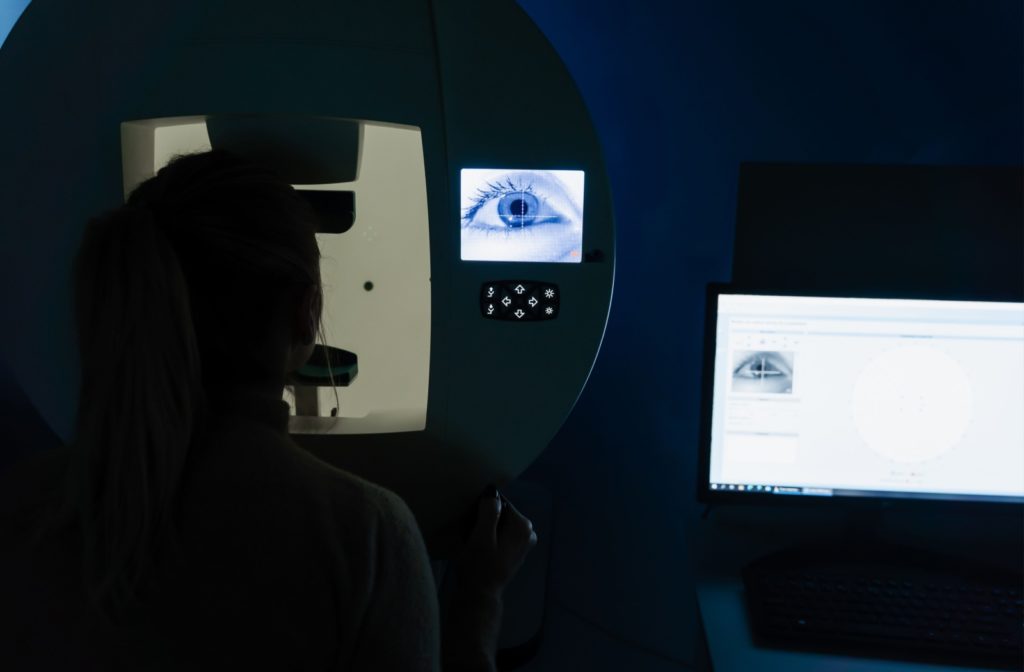
A visual field eye test measures the range of your vision, including how much you can see in every direction while focusing on a single point. […]